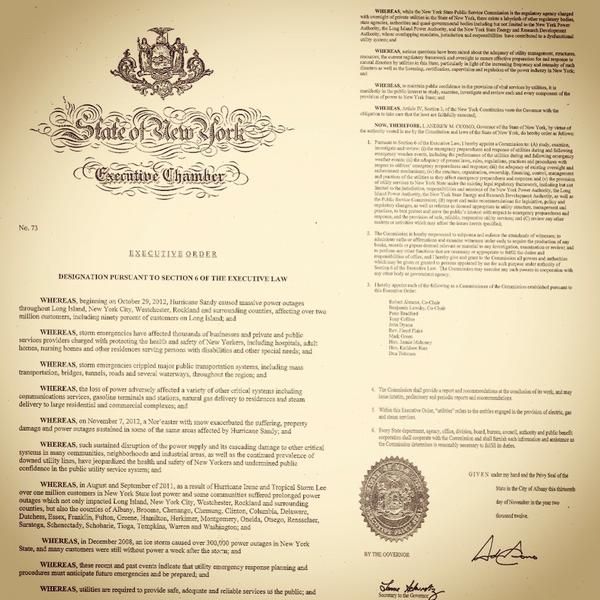Sunday morning, Oct. 29, 2012, I walked our dog around the neighborhood, observing much anticipated Hurricane Sandy brewing up ill-foreboding clouds. The wind picked up. Brown leaves were falling like snowflakes, densely covering the street.
I wondered whether we had enough batteries, water, food and other supplies for the coming days. My most useful acquisition seems a safety preparedness radio
endorsed by the American Cross which can be charged with a hand crank. I was reminded of Hurricane Katrina whose destruction I could witness first hand in Washington Parish outside New Orleans on a volunteer cleanup foray that students at Vanderbilt University had organized. The memories filled me with anguish again.
Without doubt, the disaster response to Katrina was the greatest failure in catastrophe management I experienced in my life. In short, the preparation for the catastrophe was a catastrophe.
Local, state and federal governments were made aware of the dangers Katrina would pose well ahead of time. The then Director of the National Hurricane Center Max Mayfield was publicly exasperated that nobody in charge seemed to take his warnings seriously enough. Despite his urgent warnings, public institutions failed to organize adequate evacuation of New Orleans and provide shelter and protection for its inhabitants.
In the wake of Katrina, roughly 2,000 people perished on the gulf coast. The government was unable to collect even the dead in a timely fashion. Corpses were lying in the streets of New Orleans for days. How could this happen to the nation that prides itself the wealthiest in the world?
Seven years later, several hundred million dollars have been spent to upgrade the levee and dyke system around New Orleans. The city withstood this year's Hurricane Isaac, while outlying areas were severely flooded. New Orleans has recovered only two-thirds of its pre-Katrina population. Health care and schools still remain wanting.
Katrina served as a wake up call for the nation. Today, the advance warnings and public calls for preparation are broadcast by the media early and with more drama and urgency. Hopefully, the stronger measures taken in anticipation of Hurricane Sandy will help to prevent the worst.
How do my thoughts about disaster preparedness relate to the crisis in higher education symbolized by last summer's leadership debacle at the University of Virginia?
Similar to the government's ill-preparedness to adequately respond to Katrina's impact despite prior warnings, some institutions of higher learning in this country seem unable to act preemptively to meet the challenges they face in the near future:
- Public Schools do not appear to have developed strategies that will address the enormous turnover in faculty in the wake of the retirement of the baby boomers.
- Public schools seem ill-prepared to address dwindling state support. Returns from high-risk endowment investments have proved fickle, as the aftermath of the financial crisis of 2008 profoundly illustrated, and won't fill the gap.
- Federal funds for research are drying up. They have substantially underwritten the salaries of faculty members in the past and provided the schools with additional income from overhead recovery.
- Teaching hospitals operate with mounting losses, while the bond obligations for the extravagant infrastructure expansions of the past decade need to be met.
I fear that institutions of higher learning that are seemingly oblivious of developments certain to unfold and unable to act proactively after open deliberation in their engagement of issues of importance may not be able to educate our children to be proactive about their own future. In the spirit of Mr. Jefferson, we expect that our premier universities prepare the next generation of competent leaders, enabling them to make informed, deliberate decisions in anticipation of previsible adversity ahead.
We expect that they learn to respect Murphy's Law reminding us to be ready for all eventualities as unlikely as they may seem. Anything that can happen will eventually happen. How will the universities be able to prepare the next generation for the shoals of destiny, if they themselves are unprepared?
Further Readings
- The Daily Progress covered the leadership crisis at the University of Virginia in great depth. The newspaper published a timeline of events leading up to the university president's attempted ouster by select members of the board under the headline "Timeline of Sullivan's ouster and return" online Jun. 26, 2012.
- The Washington Post's Jenna Johnson alerts us to some ramifications of the University of Virginia's governance crisis that jeopardize the institution's regional accreditation with the Southern Association of Colleges and Schools in her article with the title "U-Va. accreditation still at risk as questions linger about failed presidential ouster" published online Oct. 23, 2012.
- The Washington Post's Nick Anderson posted the thoughts of the president of the Association of American Universities Hunter R. Rawlings III on the relationship between the governance crisis at the University of Virginia and the national crisis of higher education under the headline "Head of major university group weighs in on U-Va." Oct. 25, 2012.
- Hurricane Sandy became one of the most devastating natural disasters on record to strike the Northeastern Seaboard of the US. To date, the storm cost roughly 200 lives in toto. The flood surge destroyed thousands of homes on the Jersey Shore and in New York City's waterfront communities. The city's infrastructure and public transportation was heavily damaged and may remain crippled for months. Millions of people lost power, and tens of thousands still remain disconnected from the grid today. New York's Governor Cuomo was dissatisfied with the utilities' lack of preparedness and inadequacy of response to such extent that he launched a state investigation into their performance yesterday (11/14/2012).
 |
| Governor Cuomo's executive order (source: Reuters Live). |







No comments:
Post a Comment